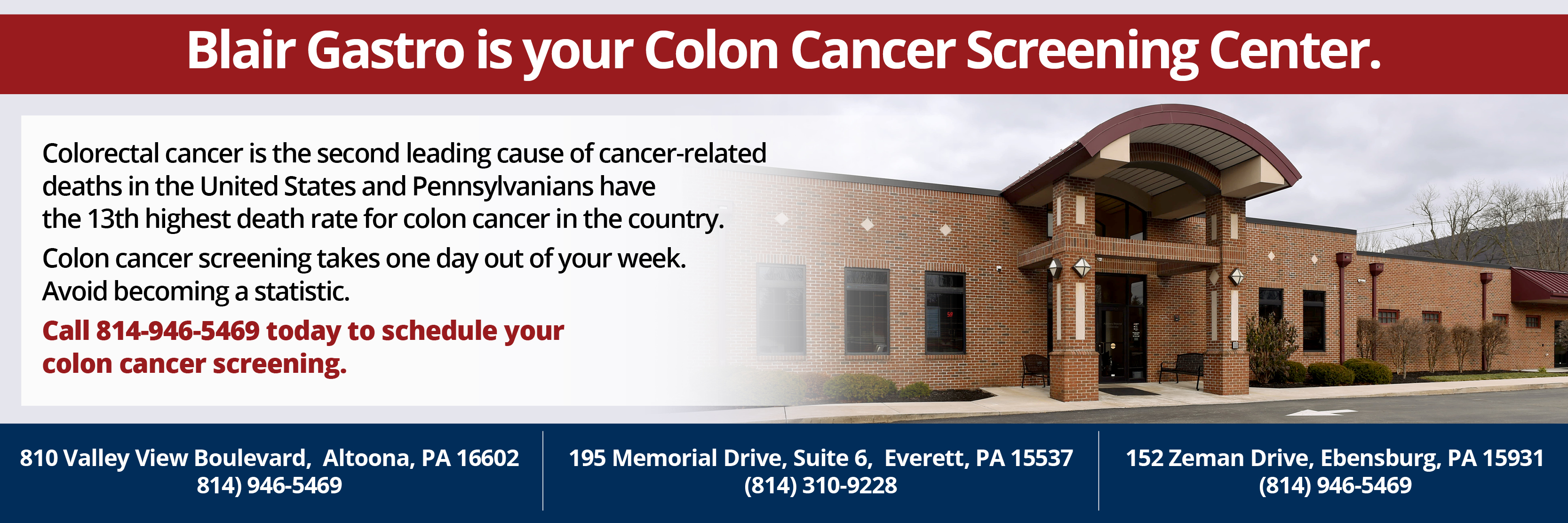
Blair Gastro is Working to Eliminate the Confusion Surrounding Colon Cancer Screening
In recent months, we have heard from an increasing number of patients who have come to us with frustration and confusion regarding Colon Cancer Screening tests. To help eliminate the confusion, and to reduce the possibility that patients are confronted with out-of-pocket costs for additional procedures after a colon cancer screening test, Blair Gastroenterology Associates is introducing the Blair Gastro Colon Cancer Screening Center.
At the Blair Gastro Colon Cancer Screening Center our providers will perform a thorough risk assessment including a review of your family, social and personal history to determine which screening test is appropriate. Genetic counseling and testing are offered if needed. You will then be given a choice of screening options. Your risk of colon cancer will influence the choice of screening tests. Our providers will be asking questions such as:
- Do you have a personal history of colon cancer or precancerous polyps?
- Is there a parent, sibling or child who has had colon cancer?
- Do you know if you carry a gene for hereditary colon cancer syndrome?
- Do you have a history of inflammatory bowel disease, such as ulcerative colitis or Crohn’s disease?
Based on the thorough review of your personal and family medical history, the Blair Gastro Colon Cancer Screening Center experts will recommend to you one of the following test options:
- Colonoscopy (which is considered the “Gold Standard” for colon cancer prevention)
- Cologuard testing
- Fecal Occult Blood Test (FOBT)
Many times, tests can return false-positives, or inconclusive results which require additional diagnostic procedures that cost the patient more. Some colon cancer screenings require full commitment to be covered in full by insurance, which means if the screening is completed and abnormalities are found, the patient still requires further testing which can include a colonoscopy.
By selecting the best possible screening method based on your personal and family history, and backed with skills and analysis of our highly experienced staff, there may be reduced need for additional procedures, tests and subsequent additional out-of-pocket expenses. We believe in early screening and insist our patients receive the most efficient care from our team of specialists.
Have your primary care physician send you to the Blair Gastro Colon Cancer Screening Center for a thorough determination of the best option for you for your colon cancer screening. You can also call Blair Gastro directly to schedule your appointment.
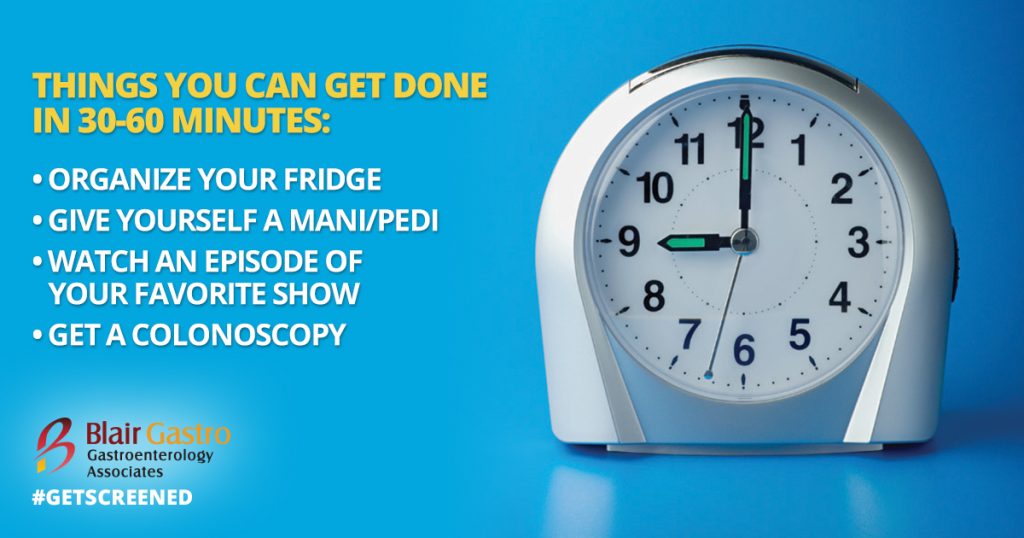
Did you know colonoscopies only take about 30-60 minutes? Taking 30-60 minutes out of your day could save your life. Avoid becoming a statistic.
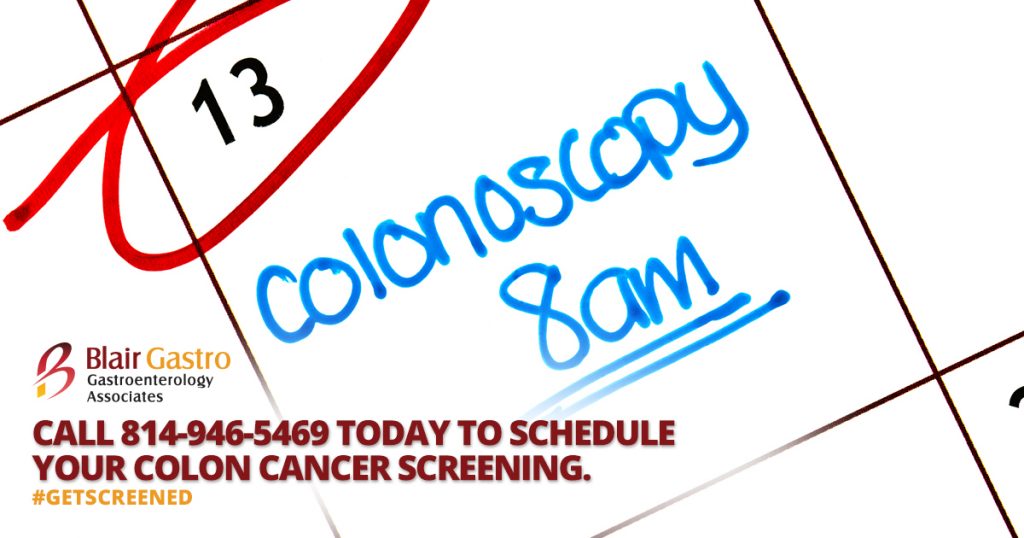
At our Colon Cancer Screening Center, we can:
- Answer any questions you may have about colon cancer and screening options
- Ensure proper evaluation of procedures to avoid additional procedures and out-of-pocket expenses
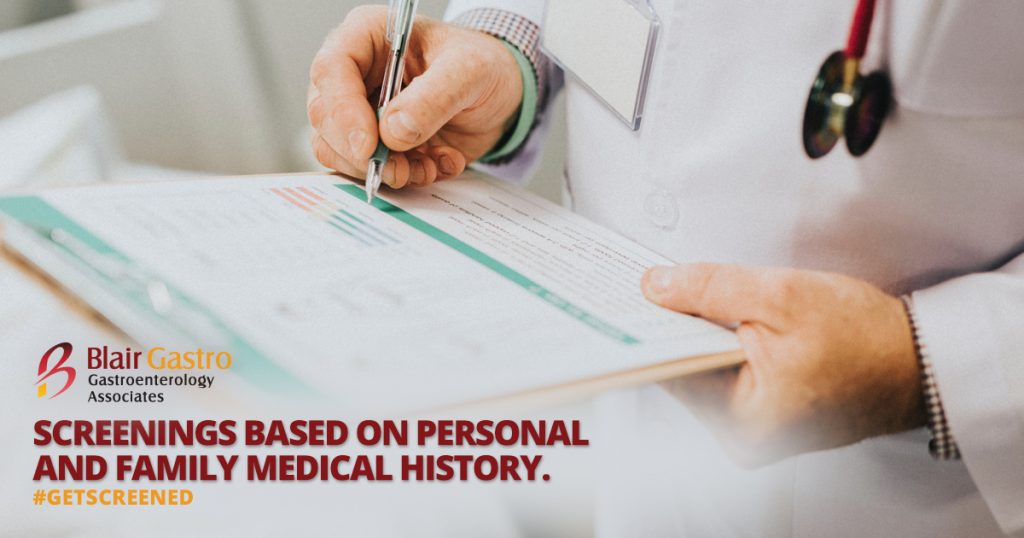
A colonoscopy isn’t the only colorectal cancer screening option. Whether it’s a Cologuard test, a Fecal Immunochemical Test (FIT), or a Fecal Occult Blood Test (FOBT), our physicians will determine which screening is best for you based on personal and family medical history.
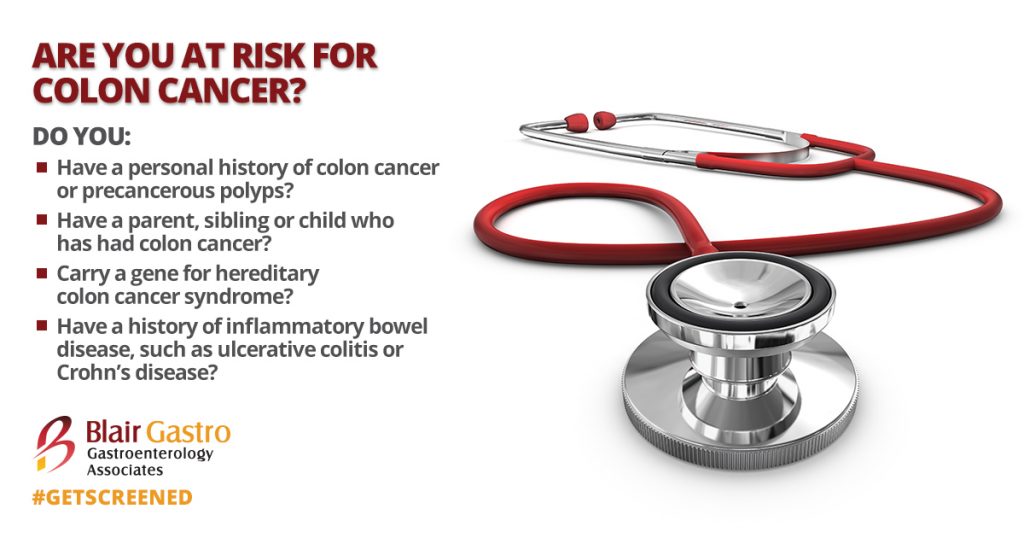
Be sure to talk to your doctor about your colon cancer risk if you:
- Have a personal history of colon cancer or precancerous polyps
- Have a parent, sibling or child who has had colon cancer
- Carry a gene for hereditary colon cancer syndrome
- Have a history of inflammatory bowel disease, such as ulcerative colitis or Crohn’s disease
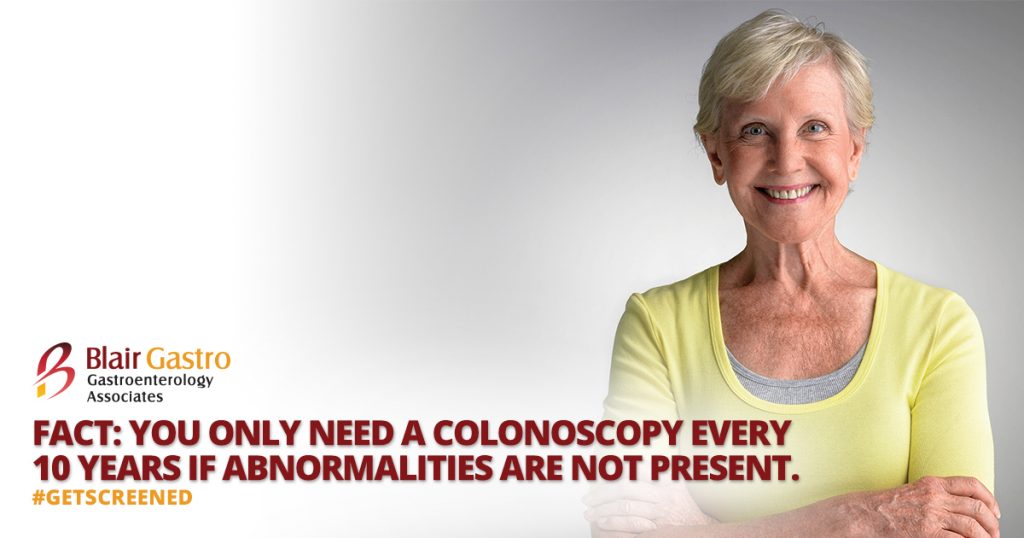
Did you know that you may only need one colonoscopy every 10 years?
Colonoscopies only need repeated every 10 years if no abnormalities are present and if the patient has no increased risk of colon cancer.
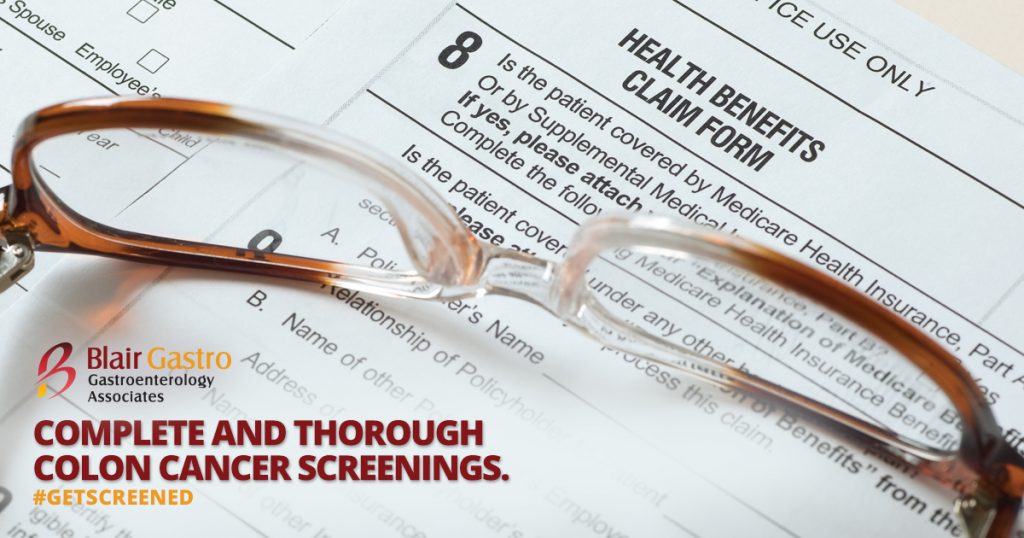
Did you know some colon cancer screenings require full commitment to be covered in full by insurance?
This means if the screening is completed and abnormalities are found, the patient still requires further testing which can include a colonoscopy. If further screening is not completed, some patients may lose insurance coverage for the additional screening.







